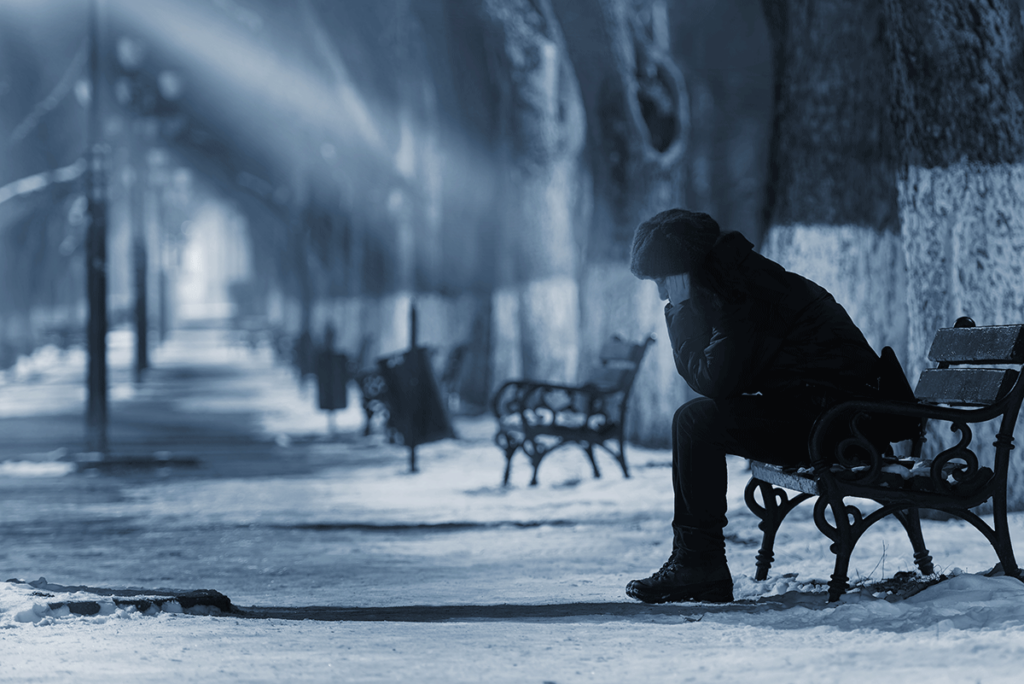Have you ever wondered, “Why do drug overdoses increase in winter?” Sadly, it is not just imagination or coincidence. More people overdose when the weather turns cold, and many factors influence this tragedy. Addiction treatment is the best way to prevent overdose death during any season.
Call Promises Behavioral Health today at 844.875.5609 to learn more.
Winter and Overdose: What Is the Connection?
Overdose is a potentially fatal risk of substance use disorder 12 months a year, but seasonal risk factors do have an influence on overdose statistics. A study from Brown University School of Public Health shows that fatal opioid overdoses rose by 25% in Connecticut and Rhode Island after periods of freezing temperatures.
When specifically discussing opioids, researchers believe the combination of opioid-induced respiratory repression and the fact that it is already more difficult to breathe in cold air could be partially responsible for the increase.
Behavioral changes in cold weather are also to blame. People tend to spend more time alone during cold weather, both outdoors and indoors. Solitude could be one reason why overdose deaths rise because there is no one present to offer help when an overdose occurs.
The same researchers examined overdose numbers during above-average temperatures to confirm if cold weather or simply extreme temperatures were increasing overdose risk, but no correlation between high temperatures and overdose was found.
Seasonal Affective Disorder
Why do drug overdoses increase in winter? Depression is one reason — specifically seasonal affective disorder.
Seasonal affective disorder (SAD) is a type of cyclical depression disorder that most commonly affects people during the winter months. There is a well-established connection between depression and substance use disorders.
According to the National Institute on Drug Abuse, approximately 38% of those struggling with substance use disorder have a co-occurring mental health concern such as depression. Unfortunately, more than half of those who need mental health care do not get it.
Worsening symptoms of depression in the winter months could lead to increased drug use and suicidal behaviors such as intentional overdose. Symptoms of SAD include:
- Fatigue
- Loss of interest in favorite activities
- Carbohydrate cravings
- Feeling hopeless, guilty, or worthless
- Changes in sleeping patterns
- Suicidal ideation
If you or someone you know is exhibiting symptoms of SAD or any symptoms of depression, seek treatment, especially if those symptoms are combined with an existing substance use disorder. The combination of depression and drug use could literally be deadly.
Social Factors
Winter and overdose rates are also connected by simple social changes most people don’t think about. Cold weather brings behavioral changes that can trigger drug use. Isolation, a lack of opportunities for healthy outdoor activities, and holiday-related loneliness are major considerations.
In addition, the extra stressors associated with winter can lead to increased drug use or relapse.
Depending on the region a person lives in, winter weather can be challenging. The extra costs of high heating bills and the physical hardships related to cold-weather living create stressful conditions. Holiday-related stress can worsen depression symptoms and cause people to feel lonely and hopeless.
These conditions are difficult for anyone, but without strong social support or stable income, people living with a substance use disorder may be even more vulnerable to overdose.
People who have been through an addiction treatment program understand how crucial it is to maintain a stringent self-care schedule in order to prevent relapse. The social changes that take place during the winter months can interrupt that self-care schedule and increase a person’s risk for unhealthy behaviors.
Promises Can Help You Prevent Overdose with Addiction Treatment
Promises Behavioral Health offers treatment programs that teach clients how to prevent relapse that can lead to overdose. Call Promises today at 844.875.5609 for more information about addiction recovery and relapse prevention.

